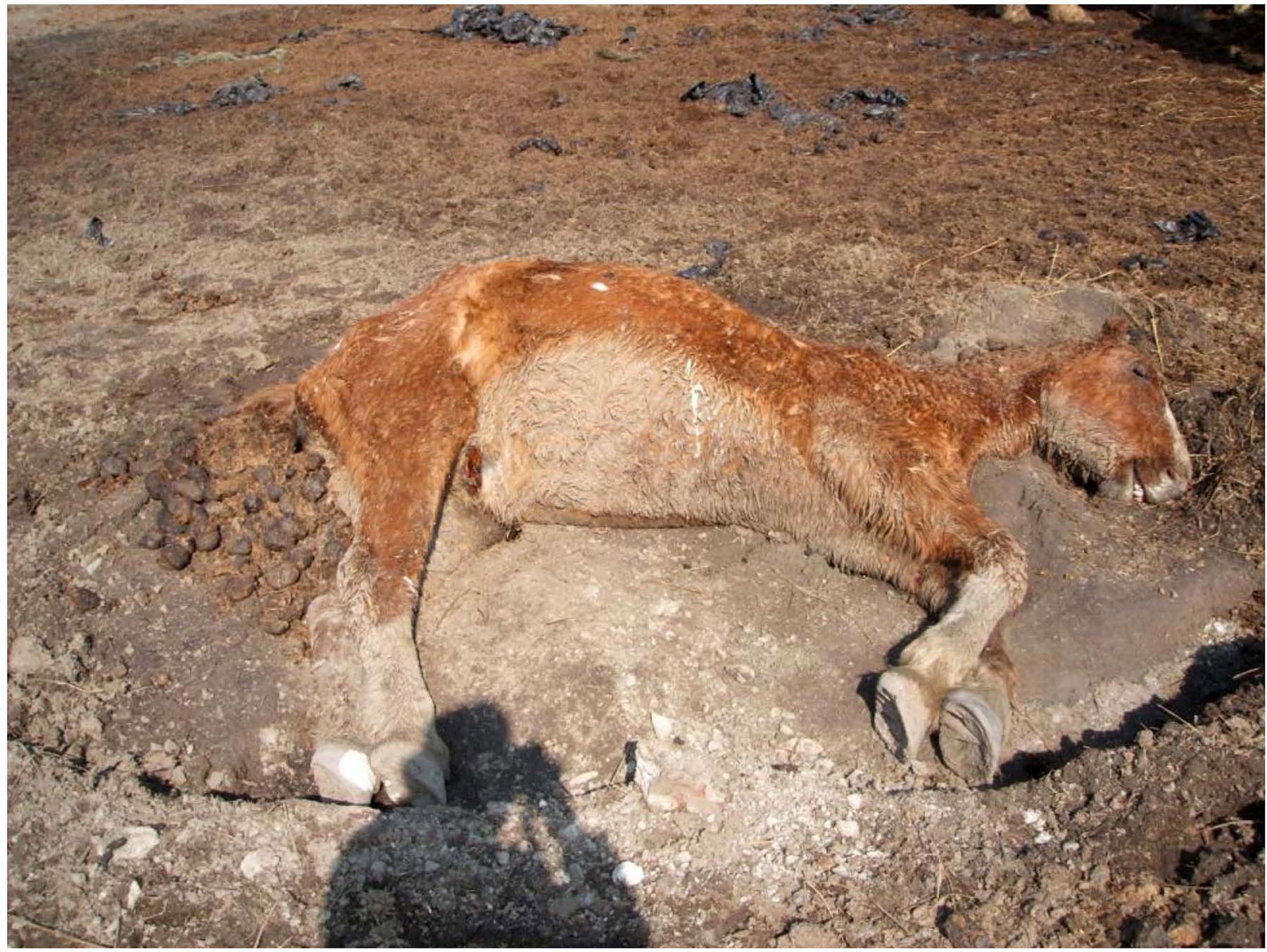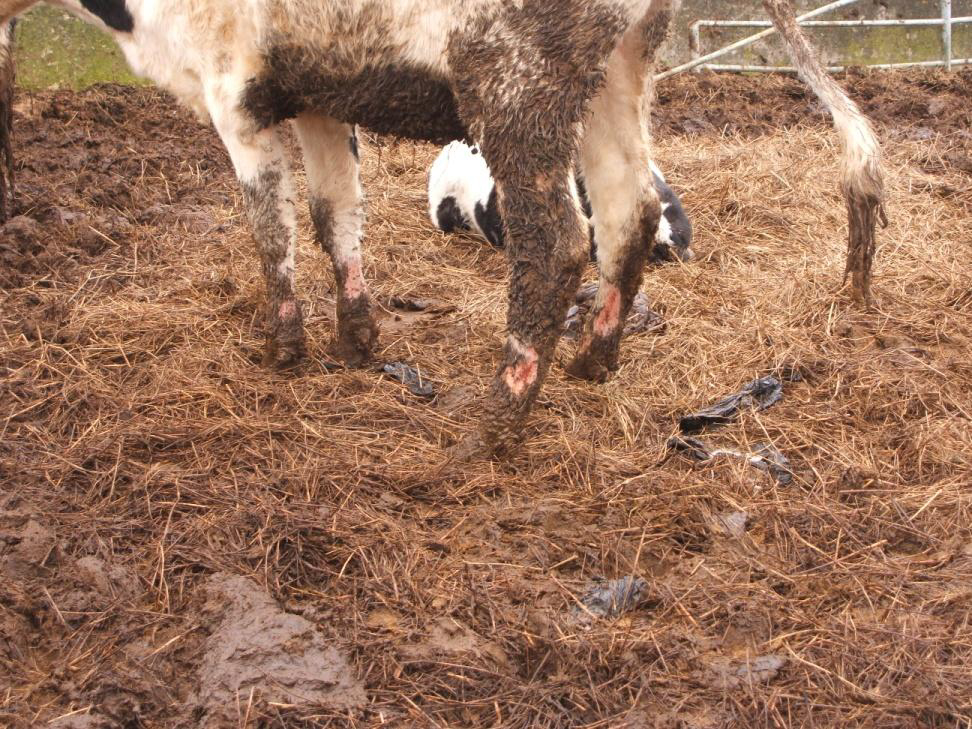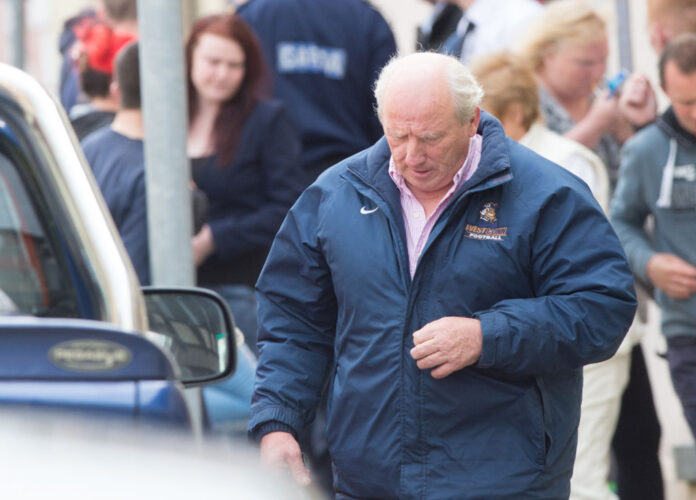*WARNING THIS ARTICLE CONTAINS GRAPHIC IMAGES SOME PEOPLE MAY FIND DISTURBING
Evidence was produced in court this week of starving and dehydrated animals on lands operated by a West Clare man, writes Carol Byrne.
A court has heard “it was a regular feature to find dead carcasses” on lands operated by a West Clare man after evidence was produced of starving and dehydrated animals, cattle that had suffered “excruciating” chemical burns and animals who had died in “severe pain”.
Martin Gerard Foley, aged 66, of Lislanahan, Kilkee appeared before Ennis Circuit Criminal Court on Tuesday, having pleaded guilty to 20 offences under the Animal Health and Welfare Act 2013.
These included failure in his duty to protect animal welfare, failing to provide adequate food and failing to comply with animal health and welfare notices.
State prosecutor Lorcan Connolly, BL, explained that 193 counts against Foley had been condensed to 20, covering offences at various holdings operated but not all owned by Foley.
These included 80 acres at Donoughboy, 40 acres at Baltard, 22 acres at Dough, 15 acres at Lislanahan and 14 acres at Tullaroe, Kilkee.
Separately, Foley admitted dumping animals in a manner likely to cause environmental pollution between April 20, 2013 and March 31, 2014 at Baltard, Doonbeg.
During a previous court hearing, gardaí said it took two days to dispose of animal carcasses that were dumped over a 300ft cliff face in Doonbeg at a cost of more than €7,000 to Clare County Council.
On Tuesday, the court heard that Foley obtained a registered herd licence in April 2013 but within a year, authorities received correspondence detailing neglect of animals in his charge.

Departmental inspections in the weeks that followed uncovered starving animals, deceased carcasses on lands, neglected animals, poor quality feed and sick and untreated animals.
In 2014, Foley had in excess of 100 cattle and 50 horses. Detective Donal Corkery said oral and written notices were given to Foley instructing him to remove dung from yards, to provide nutritional and supplementary feed to animals and to provide water for the animals.
When little to no improvements were made, the department seized 12 horses on March 20, 2016 and one of these had to be euthanised.
Detective Corkery presented photographs showing the level of neglect involved. He said the images contained “emaciated” horses and cattle and carcasses of animals that had died “in severe pain”.
He explained that a number were lying down, unable to rise and had been moving their legs in a motion known as “paddling” due to their pain. He said grooves seen under their legs had been made due to thrashing motions and this, coupled with a significant amount of dung, was indicative that they were alive for some time in severe pain.
Images of a slatted house where cattle where housed was shown to the court where the slurry tank underneath had not been emptied and slurry had risen above the slats.

“This caused chemical burns to the lower legs of the animals, which was excruciating for the animals. There was a build-up of dung and manure in what was a feeding area for animals. Silage was placed on the ground on top
of the muck and feed was put on top of wet slurry. The animals would wade through it and urinate and eat the feed,” Detective Corkery said.
In another image, taken on March 22, 2016, the court was shown what Detective Corkery described as “an emaciated cow”.
The cow had been at the same location for some time unable to rise. Four days later, he said the same cow was removed to a shed but was still unable to rise and other animals were walking around it. On March 31, departmental inspectors noted the cow remained in the same spot.
On April 12, 2016 at Lisdeen, inspectors found animals without access to water. They located a water trough in the paddock but it was empty and no water was flowing in. Notices had been given to Foley to provide water.
“The department inspector turned on the water and water flowed into the tough and animals rushed to feed. It was a case of simply turning on the tap,” Detective Corkery said.
He added that feed was of very poor quality and had little nutritional
value, if any.
“What the accused would do is he would provide a round bale and unwrap it. The black plastic wrapping would be left and the rope surrounding the bale would be left on. The animals had to eat through that rope to get the feed. Nuts were being thrown on the ground in amongst dung,” he said.
He added that it “was a regular feature to find dead carcasses” and between 2014 and 2016, a total of 34 animals were removed from the lands.
Following arrest, he said Foley did not admit or acknowledge that animals were neglected.
Defence counsel Patrick Whyms, BL, suggested that reports also showed improvements in the animals. Detective Corkery said while that was accurate, during the summer months increased grass growth contributed
to the animals regaining strength.
Lorna Meaney, a Department of Agriculture veterinary surgeon, said she was “quite taken aback by the welfare conditions, in particular some of the bovine animals” when she visited the holdings in 2016.
“They were in appalling conditions. The overall severity and scale of this is unprecedented,” she said.
She believed Foley was not “in a position to own or be responsible for any animal, bovine or equine”.
The court heard that Foley no longer had cattle but as of May 13, 2019 he had 100 horses. Four young male horses were found restricted in a shed, only one had water and others were described as really thin.
Ms Meaney said, “I would have concerns for the welfare of those animals going forward”.
James Quinn, an army captain, who was on the Irish national showjumping team and a judge at national competitions thereafter, testified that Foley was a competitive and talented showjumper in the 1970s. He said he had no difficulty trading horses with him in previous years and that Foley was on the county show committee for years.
Mr Whyms said his client was “not a cowboy” and had been involved with horses at a high level.
He said a situation developed where he became involved in this “enterprise” and “it became quite large quite fast”.
“There is no doubt that he became overloaded and overwhelmed,” he said.
He argued the environmental case against Foley amounted to odours and that, if challenged, the case could have created difficulties for the prosecution.
He said Foley would repay Clare County Council the disposal fee of €7,200 in the environmental case and he would consent to an order disqualifying him from holding cattle and horses.
Judge Gerald Keys indicated he would impose a lifetime ban on Foley in respect of holding cattle and horses. He gave Foley until October 29 to clear his lands and he will finalise his order on that date.
A native of Ennis, Colin McGann has been editor of The Clare Champion since August 2020. Former editor of The Clare People, he is a journalism and communications graduate of Dublin Institute of Technology.




